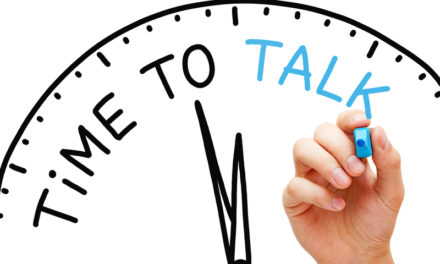Although #mentalhealth problems affect one in four of us, people are afraid to talk about it.
It is a myth that mental illness has to do with ageing. In fact, mental health disorders affect younger adults more than the elderly. An alarming fact is that fifty per cent of mental illness begins by age 14, and three-quarters begin by age 24.
Let’s first understand what mental health is. Mental health is about our emotional, psychological, and social well-being. It affects how we think, feel, and act and determines how we handle stress, relate to others, and make choices. We start facing these situations from a very young age; why then, do we assume that mental health only affects the aged?
Think about it – when we are not distressed and fully able to explain our feelings and emotions, we feel joy telling someone something that’s really important to us. As inherently social creatures, we find the greatest happiness when we can #shareourfeelings with one another; this is utmostly important for our personal well-being. For people with mental health problems, not being able to talk about it can be one of the worst nightmares.
Communication holds the Key
Problems start to surface when receiving and delivering information channels shut down or lack definition. The absence or lack of #communication evokes anxiety, depression, and stress. It predisposes people to social isolation & loneliness. And, when poor communication becomes a regular occurrence in our personal or work lives, it has the potential to lead to bigger issues, such as stress, ultimately leading to poor mental health.
Ideally, communication should be open and clear at all times. Even trivial issues should be dealt with quickly and effectively before they get out of hand & become bigger. But this isn’t possible when communication is non-existent. As a result, those smaller things then build into much bigger ones which are harmful to the relationship & lead to mental health disorders.
And to make matters worse, the stigma surrounding mental disorders makes people reluctant to seek help. Many people view mental illness as a sign of weakness and are unlikely to admit to experiencing problems, especially when they fear the loss of independence. And, too many people consider the symptoms of dementia and depression as normal parts of ageing
Therefore, an #ongoingcommunication must be maintained; it truly is an effective therapy. When we are all working well with each other, life will usually be smooth. You’ll feel positive and productive, confident, full of energy and stress-free.
The Power of Listening
Besides communication, reading non-verbal signs is equally important. Sometimes it may seem obvious when someone is going through a hard time, but there is no simple way of knowing if they may be open to talking about it. Talking to someone is often the first step to finding out what is troubling them. The best way to understand people is to listen to them. The most basic of all human needs is the need to understand and be understood.
It is more important to respond sensitively to someone who seems troubled than to find out whether or not they have a diagnosis. If you are concerned about a family member or close friend, they might not want to talk to you. Talking to someone you love can be difficult. Yet, it is important to keep being open & telling them that you care & are prepared to listen. They might be waiting to hear this from you. If they do open up, listen without making judgements & concentrate on their needs in that moment. The key here is to avoid confrontation.
#Listening is one of the most potent & powerful forces for change and is long overdue. Let’s spring into action & get closer to preventing #mentalhealthdisorders. It could be your own child, your young sibling, friend or a neighbour next door who might be seeking an opportunity to talk to someone!





